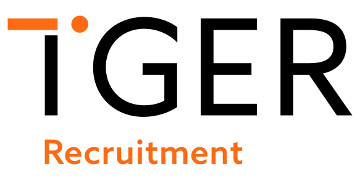Our time is split into two boxes: 'work' – things we earn money for – and 'life' – things we do outside of work. HR takes care of the work box, leaving employees free to nurture the life part. Less understandable is HR’s ranking of these two boxes. The 'life' box is ranked as more fun. To put it differently, HR departments tend to view employees as preferring not to work. Now this conception is set (i.e. that work is separate from life, life is fun work isn’t) it is HR's role to compensate for work suffering.
First of all, we need to be materially compensated for the work we do with a salary. However, that doesn’t make people motivated or particularly productive, which is why they are offered benefits, perks, or bonuses. The effect is famously ephemeral. Like a donkey who is given a carrot, employees stop moving once they finish the vegetable. To move again they ask for a new carrot – and a longer one this time.
Despite compensation and benefits HR managers still believe that people suffer at work and little can be done about it. 'So let’s at least reduce the conflict between work and life after work' they think. Measures limiting overwork, facilitating family obligations, flexible schedules, and working from home are all welcome. Yet what goes unseen are the fundamental problems in the way companies are organised and in beliefs about work, which causes a tremendous lack of employee motivation and engagement. In other words, HR departments don’t look at how to make work fun.
If they did it would be clear that the number one cause of employee disengagement and work stress is the lack of control of one’s activities. As long as an employee’s activities are dictated by their boss – or some procedures the bosses put in place – they won’t be engaged or intrinsically motivated. They won’t run to work and won’t be proud of what they did to tell people about it at home. They won't have fun or be proud to read a protocol to the client who has a problem. Instead they will have fun and be proud when they use their wits to find a solution for the client’s problem by themselves, enjoying freedom of initiative.
To change disengagement at work companies need to address its real cause, which is their traditional hierarchical and bureaucratic work organisation. Bosses and procedures don’t meet people's natural and universal needs of autonomy, growth, and trust. Quite the opposite: they deprive these needs.
A more natural and engaging way to organise work is what I call the ‘liberated company’. By that I mean a work environment in which employees have complete freedom and responsibility to undertake any action they – not their superiors or procedures – decide is best for the business. I studied and observed close to 100 companies and public institutions whose leaders decided to transform the hierarchical bureaucracies into liberated organisational environments. It’s not a model you can impose, but a philosophy that must be brought into and articulated in company context by its leader. HR departments are an important partner in building such a unique organisational mode.
So do CEOs relinquish all the power in liberated companies? The power goes where it was to begin with: the clients, and by proxy, the frontline people who deal with the clients. But yes, some CEOs retain a bit of power. For example Stan Richards, the CEO of the largest US privately-owned and liberated advertisement agency, retained one executive decision: to force people to leave for home at 6pm. People honestly have so much fun at work and are so proud of their accomplishments that they must be forced to leave for home. Work/life balance takes its full meaning here.
Isaac Getz is a professor at ESCP Europe Business School and co-author of Freedom, Inc.









